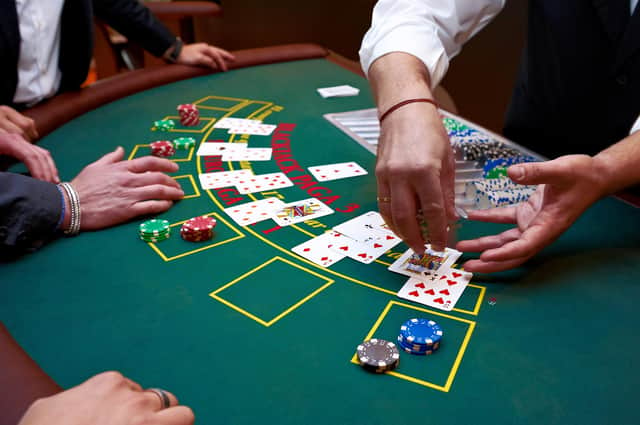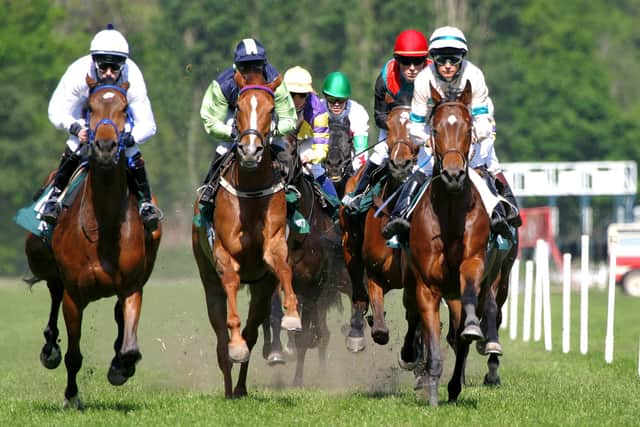A short history of gambling in the United Kingdom


Great Britain has long enjoyed different forms of entertainment and casino games are no stranger to its past. If we take a close look at the history of wagering, we see the country has played a significant role in the evolution of gambling throughout the centuries.
Lotteries and thrilling horse races (17th century)
Until around the 17th century, the most popular form of betting was horse racing. Reminiscent of that time is the Kiplingcotes Derby, which is still held in Yorkshire and is said to be one of the oldest surviving horse races.


The derby started in 1519 and ran over four miles of countryside – and the 500th race was celebrated in 2019.
The very first racing bets that we know about can be traced back to King James I. The king, who also established Newmarket as a royal resort in the 17th century, bet £100 on a race between horses owned by the Marquess of Buckingham and Lord Salisbury in 1622.
The oldest horse racing trophy in existence is the Carlisle Bells, which dates back to 1559.
From the history of blackjack to lotteries and later modern casino online games, a lot has happened. And even if nowadays lotteries are not that popular anymore, it was not always the case.
The love that British people have for lottery games began in 1569 when Queen Elizabeth I wanted to raise funds for the refurbishment of London. The one who drew the winning ticket out of an urn that was located in front of St. Paul’s Cathedral was a child. Unfortunately, the event wasn’t successful as only 40,000 tickets were sold from the anticipated 400,000.
In the following decades, several other lottery attempts were made but the first state lottery was only organised in 1694. This event was known as the Million Lottery.
The Government released 100,000 tickets at £10 each and the tickets were stored in secure chests with 18 locks. The goal behind the lottery was to raise money for the Nine Years’ War. The lottery was a success and so, many other lotteries followed it.
Introduction of new rules (18th – 19th centuries)
At the beginning of the 18th century, new rules were introduced which were meant to create greater control over the betting industry.
The first impactful set of rules was the Gaming Act, enacted in 1845, which made a wager unenforceable as a contract.
A few years later in 1853, the Betting Act came into existence which was an attempt to tighten the law in order to deal with a large number of bookmakers.
With more and more rules directed at the gambling industry, the English State Lottery was started in 1694 and finally closed its gates in 1826. The last draw was made at Coopers Hall and the money raised there was used to build Westminster Bridge and the British Museum.
Freedom to bet (20th and 21st centuries)
World War II served as a turning point for the gambling industry as it introduced games such as poker to new players.
Of course, advances made in technology also contributed to the overall popularity of this kind of game.
The Betting and Gaming Act of 1960 consolidated legislation for gambling. In less than a year, there were no less than 13,000 licensed betting shops in the UK and casinos began to open. The first casino in the UK was Casino Club Port Talbot in Wales which began in 1961.
In 1993, the state lottery returned. The National Lottery Act introduced the framework for gambling on a lottery, and 25% of the profit went to good causes, as directed by Parliament.
In conclusion, the rapid change in technology may prove to be another turning point in the future of gambling in the UK. With games being more popular and accessible it’s no surprise that the industry will continue to survive for many centuries to come.
DISCLAIMER: Gambling involves risk and you must not gamble with funds you can’t afford to lose. It is not a solution to any financial difficulty. Remember, the house always wins!
If you believe you’re suffering from a gambling addiction or know anyone who does, call the National Gambling Helpline at 0808-8020-133 right away. Their advisors can help make gambling safe for you.
All gambling sites and guides are 18+ only.
Check out the free gambling addiction resources from these organisations.
https://www.gamstop.co.uk/